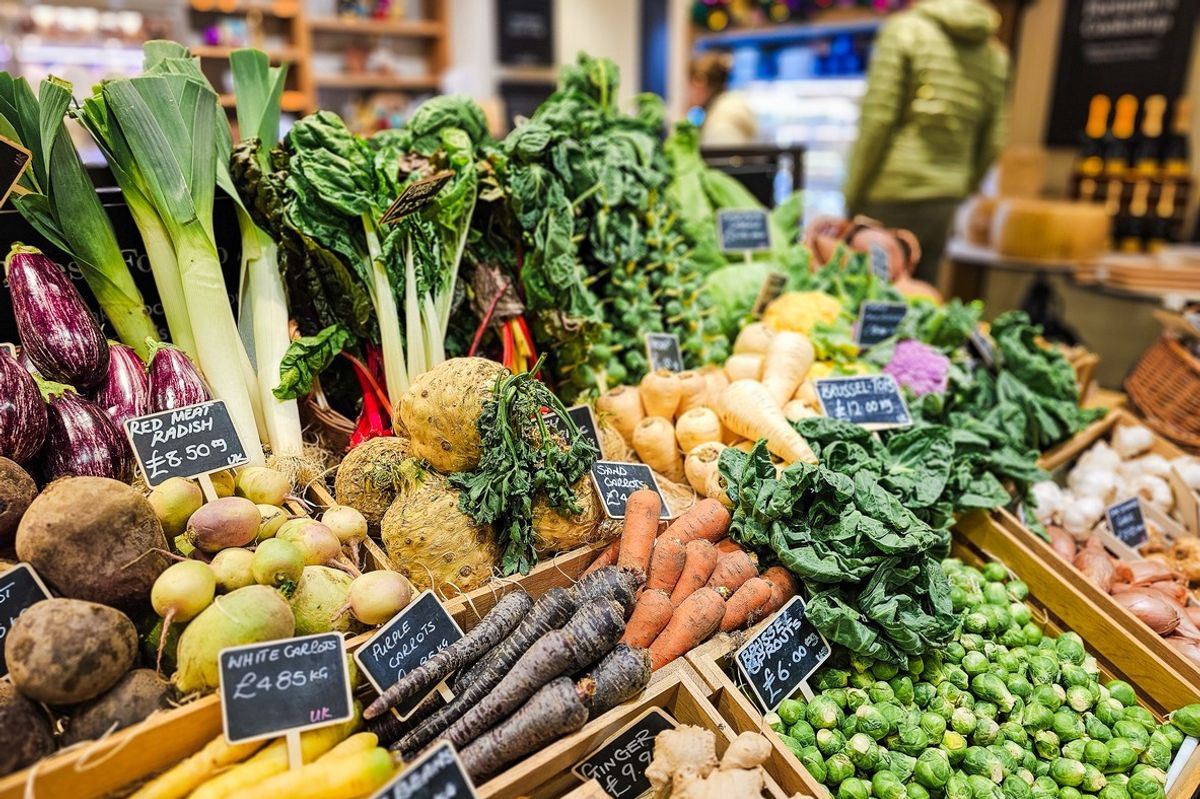- The government has unveiled a sweeping new food strategy, ‘Good Food Cycle’
- The new framework is billed as a major milestone in delivering the Government’s wider ‘Plan for Change’
- The ten outcomes have been informed by expert advice, workshops, as well as members of the public
The government has unveiled a sweeping new food strategy, dubbed the "Good Food Cycle", with a focus on boosting national health, supporting the food industry and enhancing long-term food security.
Announced on Wednesday at Bradford’s Darley Street Market, the strategy outlines ten key outcomes designed to build a more resilient, sustainable and inclusive food system for England.
Key outcomes include:
- An improved food environment that supports healthier and more environmentally sustainable food sales
- Access for all to safe, affordable, healthy, convenient and appealing food options
- Conditions for the food sector to thrive and grow sustainably, including investment in innovation and productivity, and fairer more transparent supply chains
The new framework is billed as a major milestone in delivering the Government’s wider ‘Plan for Change’ and covers the entire UK food ecosystem – from supermarkets and school meals to food innovation and public health.
“Food security is national security – we need a resilient food system that can weather any storm while ensuring families across the country can access affordable, healthy food,” minister for food security Daniel Zeichner said.
“The Good Food Cycle represents a major milestone. We are actively defining the outcomes we want from our food system to deliver a whole system change that will help the amazing businesses that feed our nation to grow and thrive, which means more jobs and stronger local economies, while making it easier for families to eat and feel better.”
The ten outcomes have been informed by expert advice from departments across government, the Food Strategy Advisory Board (FSAB), workshops with interested charities and businesses, as well as members of the public from a Citizen Advisory Council.
“As co-secretariat of the FSAB, we partnered with the Defra team earlier this year to host multi-stakeholder workshops, engaging over 150 organisations across the agri-food supply chain,” Sarah Bradbury, CEO at IGD, said.
“Their insights have directly shaped the Good Food Cycle’s ambition to build a food system that works for everyone. A powerful example of what can be achieved through collaboration.”
The Good Food Cycle builds on recent government measures to curb diet-related health problems. Fresh partnerships with big food companies will see them share data on healthy food sales, creating more transparency and a level playing field across the industry.
With two-thirds of adults in England currently overweight or living with obesity and costing the NHS over £11.4 billion annually, the new approach is expected to help make sure healthier choices don’t get squeezed off supermarket shelves by less nutritious options.
Widespread backing
Retailers, manufacturers and public health leaders welcomed the new strategy.
“Retailers welcome the ambition and direction of the framework. They know customers want more British food, sustainably produced and with clear healthy choices; something we believe this approach can help to deliver,” Andrew Opie, Director of Food & Sustainability at the British Retail Consortium, said.
Kate Nicholls, Chair of UKHospitality, added: “The food supply chain shares the government’s ambitions to create a healthier, more sustainable food system, and it’s critical the government works with businesses to do that in a pragmatic and achievable way.”
Balwinder Dhoot, Director of Sustainability and Growth, The Food and Drink Federation (FDF), welcomed the strategy’s “holistic view” that considers all of the factors affecting the sector.
“From the everyday staples found in kitchen cupboards, fridges and freezers, like oats, yoghurts, tins of beans and frozen vegetables, to ready meals, confectionary and new healthier snacks, UK food and drink manufacturers help the nation have a balanced and varied diet, amid busy lifestyles,” Dhoot commented.
“We’re pleased to see government acknowledge the importance of our industry to achieving a resilient, sustainable and healthy food system for the UK and look forward to working together to develop this ambitious food strategy.”
The Food Standards Agency also backed the approach, with Chair Professor Susan Jebb stating: “We continue to work closely with other departments in the delivery of the strategy, playing our part to make it easier for consumers to access food that is healthier and more sustainable.”


